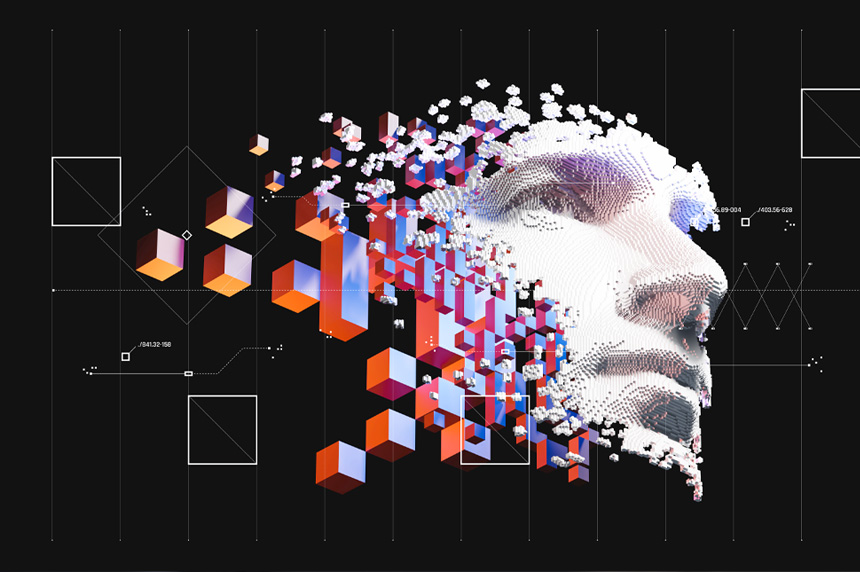Compare VM, VPN, and managed attribution technologies for online research and investigations. Learn which delivers true anonymity, isolation, and protection against exposure.
If you’re looking for ways to conduct secure online research, you’ve likely considered a few different options, such as virtual machines (VMs), VPNs (virtual private networks), and managed attribution platforms. While each promises protection and privacy, not all of them deliver true anonymity. Here’s how the three approaches compare — and why managed attribution stands apart.
What is a virtual machine (VM)?
A virtual machine, or VM, is a software-based computer that runs on another physical computer. You can use a VM to create an isolated environment and disassociate yourself from your actual workstation or endpoint. Researchers and cybersecurity pros often use VMs to test software, analyze malware, or simulate different user environments without affecting their actual workstations.
While VMs do isolate your activity from your physical host machine, they aren’t built to conceal your identity. For researchers, this means that network traffic, digital fingerprints, and host system data can still be linked back to the real user or organization, compromising operational security.
What is a virtual private network (VPN)?
A virtual private network, or VPN, is a service that encrypts your internet connection and routes it through a secure remote server. This masks your real IP address and makes your online activity appear to come from a different location. People often use VPNs to protect the data they transmit, to access region-restricted content, and to provide secure connections for remote workers.
While VPNs mask your network identity, they don’t truly anonymize your online activity. The same endpoint — your physical device — remains exposed to malware, and your digital fingerprint remains visible. For threat researchers, this means adversaries can still detect organizational ties, browser details, and behavioral patterns that reveal intent, which puts your digital investigation at risk.
What is managed attribution?
Managed attribution is the ability to control how the details of your device, browser, and browsing behavior are projected to websites you visit. Managed attribution helps you blend into your environment and conceal your identity as you conduct digital investigations. You can completely customize how you appear to sites and people you interact with online.
In short, managed attribution delivers the highest level of anonymity and isolation for online research, far beyond what VPNs or VMs can achieve.
Learn more about how managed attribution improves online investigations >
How VMs and VPNs fall short
While VMs and VPNs have their place in the tech stack for average users, they show their limitations when used for anonymous research or investigative purposes.
One misconception with VMs is that by using a different operating system, you’re adding a layer of privacy, security, and anonymity. This is not the case, especially if you’re just running a VM on your standard workstation that you do your normal work on, as you’re still using the same network card. This means that you’re still presenting yourself to the internet as your work computer and not the VM.
VPNs are a little different in that you are now representing yourself on the internet as coming from a different network or IP space. While this may provide some anonymity and privacy, there are still concerns about using the same endpoint you do your normal work on for research/investigative purposes, even with the VPN in place. For example, if you investigate a malicious website, your endpoint is still at risk.
Additionally, pairing a VPN service with a VM doesn’t really add any significant protections, even if the VM is network-based. You could be using a corporate VM or virtual desktop infrastructure (VDI) that appears to be coming from the corporate network. Malicious actors are sophisticated enough to identify that corporate network and ban that IP space from accessing their sites.
Learn more: What VPNs and incognito mode still give away in your online identity >
One last consideration with VPN services is that they state they do not monitor or collect logs of users using their service, but oftentimes, this is false. Some VPN providers capture session or connection data and have the potential to sell that information or potentially leak that information to malicious actors.
Why managed attribution is the best solution for researchers
Managed attribution provides you with the only complete solution for anonymous, compliant online investigations. Unlike VPNs or VMs, it isolates all browsing activity in a remote environment and gives you total control over your digital fingerprint.
A managed attribution solution helps you mitigate these security risks, privacy concerns, and threats to investigative integrity. But to do so, the managed attribution solution needs the following components.
Absolute isolation
A managed attribution solution accessible via a remote, cloud-based browsing environment allows you to surf the internet with the same experience as any traditional browser but with added protections and security. No web code ever touches the endpoint or network, eliminating the risk of malware infection.
Customized online appearance
Managed attribution allows you to completely customize how you appear to sites and people you interact with online by manipulating device details, including:
- Language
- Time zone
- Keyboard settings
- Browser
- Operating system
- Location
- IP address
Logging and audit trails
Companies that sell VPNs have access to what’s done on their services, and that information has the potential to be sold or leaked. That’s why it’s important that the work of mission-critical research only be logged within the organization. The customer — not the vendor — should be the only one able to access, view, or download any logs that may be generated by using the managed attribution solution.
How Silo helps
Silo executes all web-native code remotely so that it never reaches the endpoint, keeping your device and network safe from malware. Its purpose-built online investigation solution gives you complete control of your digital fingerprint and leverages a global network of non-attributable IP addresses to provide in-region access. And with Silo, only customer admins can access and manage logs, providing added protections for users to keep their research secure and compliant.
To learn more and try Silo for yourself, visit our experience center.
Virtual machines vs. virtual private networks vs. managed attribution FAQs
What’s the difference between a VM and a VPN?
A VM isolates your operating environment, while a VPN encrypts your internet connection. Both improve privacy, but neither hides your identity or device fingerprints like managed attribution does.
Why isn’t a VPN enough for secure online research?
A VPN hides your IP but doesn’t disguise browser or device details. For investigators, managed attribution ensures complete anonymity by isolating browsing activity in the cloud.
Is managed attribution better than a VM for anonymity?
Yes, managed attribution is better than a VM for anonymity. A VM offers local isolation, but managed attribution provides full network and identity separation — no web code touches your device.



